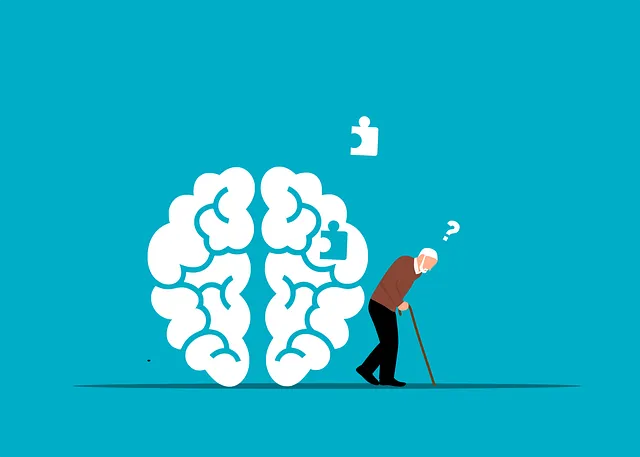Developing effective coping skills is crucial for mental well-being, especially for individuals seeking specialized care in Denver. Kaiser, a leading inpatient mental health facility in Denver, CO, offers comprehensive treatment that includes around-the-clock monitoring, evidence-based therapies, and personalized plans. Through structured activities, group therapy, and self-care practices, patients gain coping skills tailored to their unique needs, promoting long-term mental health management. Kaiser's programs integrate emotional intelligence, crisis intervention, and trauma support services, empowering individuals to navigate challenges with enhanced resilience and improved self-esteem.
“Coping skills development is a pivotal aspect of cultivating mental well-being. This comprehensive guide explores strategies for building resilience, focusing on evidence-based techniques and real-world applications. We delve into the foundational understanding of coping skills, examining their role in promoting mental health.
This article highlights successful programs like Kaiser’s inpatient mental health services in Denver, CO, offering insights into effective practices. Additionally, it guides readers through personal strategy identification, integration into daily life, and long-term mental health sustenance.”
- Understanding Coping Skills: A Foundation for Mental Well-being
- The Role of Inpatient Mental Health Programs in Denver, CO (Kaiser Example)
- Identifying Personal Coping Strategies: A Journey to Resilience
- Evidence-Based Techniques for Effective Coping Skills Development
- Integrating Coping Strategies into Daily Life: Sustaining Long-term Mental Health
Understanding Coping Skills: A Foundation for Mental Well-being

Understanding coping skills is a fundamental aspect of fostering mental well-being, especially for individuals seeking specialized care like that offered by facilities providing inpatient mental health services in Denver, such as Kaiser. These skills serve as tools to navigate life’s challenges and maintain balance during stressful situations. Coping involves learning to manage and regulate emotions, making it a crucial component of overall mental health.
Developing strong coping strategies enables people to adapt to difficult circumstances, whether it’s dealing with anxiety, depression, or traumatic events. Emotional Intelligence (EI) plays a pivotal role here, as it enhances self-awareness exercises, allowing individuals to recognize and understand their emotions. With the right guidance, such as that offered in crisis intervention programs, one can learn to use these skills to transform negative responses into positive ones, thereby improving overall mental resilience.
The Role of Inpatient Mental Health Programs in Denver, CO (Kaiser Example)

Inpatient mental health programs play a pivotal role in providing intensive care and support for individuals grappling with severe mental health challenges. A notable example in Denver, CO, is Kaiser, an institution renowned for its comprehensive approach to patient well-being. These programs offer a safe and controlled environment where patients can receive around-the-clock monitoring, evidence-based therapies, and personalized treatment plans tailored to their unique needs.
At Kaiser, the focus extends beyond treating symptoms to fostering resilience building and risk management planning for mental health professionals. Through structured activities, group therapy sessions, and individualized self-care practices, patients are equipped with essential coping skills. This holistic approach not only addresses immediate concerns but also empowers individuals to manage their mental health effectively in the long term.
Identifying Personal Coping Strategies: A Journey to Resilience

Identifying Personal Coping Strategies is a transformative journey toward resilience. It involves introspecting to understand unique triggers and stressors, which varies greatly from person to person. At Kaiser’s inpatient mental health facilities in Denver, this process often begins with patients being encouraged to document their emotional responses to different situations—a practice that facilitates self-awareness. By tracking patterns, individuals can learn to recognize when they’re facing challenges and proactively employ coping strategies that align with their personal preferences and needs.
This journey isn’t just about understanding triggers; it’s also about cultivating a toolkit of resilience-building techniques. Mental Health Education Programs designed by Kaiser Denver often incorporate Self-Care Practices tailored to promote emotional well-being, both during treatment and beyond. Through this holistic approach, individuals gain the skills needed to navigate life’s twists and turns, fostering mental fortitude that translates into enhanced coping abilities and improved overall mental health.
Evidence-Based Techniques for Effective Coping Skills Development

When it comes to evidence-based techniques for effective coping skills development, Kaiser’s inpatient mental health services in Denver stand out. These programs often integrate a range of strategies tailored to individual needs. One powerful approach involves Self-Awareness Exercises, encouraging individuals to recognize and understand their emotions, thoughts, and triggers—a cornerstone of building adaptive coping mechanisms. By fostering Mind Over Matter Principles, patients learn to reframe negative thought patterns and cultivate resilience.
Additionally, trauma support services play a crucial role in coping skills development, especially for those who have experienced adverse events. These services offer specialized interventions designed to process and manage traumatic memories and responses, enabling individuals to develop healthy coping strategies. Through these evidence-based techniques, Kaiser’s inpatient mental health facilities in Denver empower patients to navigate challenges more effectively, promoting long-term well-being.
Integrating Coping Strategies into Daily Life: Sustaining Long-term Mental Health

Integrating coping strategies into daily life is a cornerstone of long-term mental health, especially for those seeking support through inpatient mental health services, like what Kaiser offers in Denver. Effective coping skills not only help individuals manage stress and adversity but also enhance overall well-being. By adopting tailored techniques, individuals can navigate life’s challenges with resilience.
Mental Health Awareness plays a crucial role in recognizing when to seek professional help, such as inpatient care, and understanding that coping strategies are lifelong tools. Self-esteem improvement is often a byproduct of mastering these skills, fostering an individual’s ability to confront and overcome mental health struggles. Kaiser’s inpatient programs in Denver provide comprehensive care, including teaching robust coping strategies, to ensure patients emerge with the tools needed for sustained mental health.
Coping skills development, as highlighted by Kaiser’s inpatient mental health programs in Denver, is a multifaceted process crucial for maintaining long-term mental health. By understanding and identifying personal coping strategies, individuals can navigate life’s challenges with resilience. Evidence-based techniques, when integrated into daily routines, enhance overall well-being. Given the success of programs like Kaiser’s in Denver, it’s clear that investing in coping skills development is a game-changer for mental health support, offering a sustainable path to a vibrant and resilient mindset.






